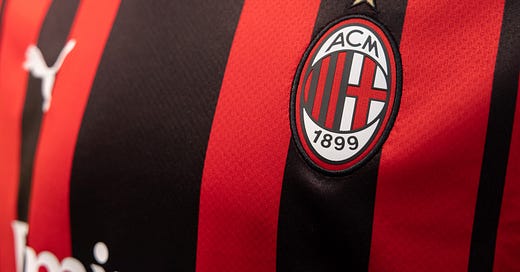Make sport marketing partnerships, not war
AC Milan has agreed a deal with Democratic Republic of Congo’s tourist board, but is it a matter of business or of geopolitics?
Italian football club AC Milan has just signed a deal with the Democratic Republic of Congo, specifically its Ministry of Tourism.
For the Milan club, this deal will presumably provide a welcome financial boost and seems likely to drive greater fan engagement in Africa.
For the DRC, associating with the AC will help promote and stimulate the impacts of tourism into the country.
Yet, the deal’s announcement comes just a matter of months after Rwandan backed M23 rebels displaced upwards of 400,000 DRC citizens.
At the time, DRC’s foreign minister, Thérèse Kayikwamba Wagner, called for the owners of European football clubs Arsenal, Bayern Munich and Paris Saint Germain to terminate their Visit Rwanda tourism sponsorship deals.
The country’s AC Milan deal, which some observers speculate will see a name and logo appearing on team shirts, therefore carries with it a sense of ‘if you can’t beat them, join them’.
An alternative view could be that shirt sponsorships now serve as instruments of national self-interest and territorial rights, rather than a form of marketing.
None of this should be a surprise.
After all, Italy has a historic relationship with DRC that dates back to the late nineteenth century.
More recently, trade relations between the two countries have been healthy, albeit disproportionately unbalanced in favour of the Democratic Republic of the Congo.
In particular, Italy imports vast quantities of natural resources from the DRC, which includes lithium, copper, cobalt, oil and gold.
Such resources are fundamental to industrial strength and economic growth in the 21st century, the significance of which is already being highlighted through China’s engagement in stadium diplomacy across Africa.
Meantime, Italy has just selected DRC as a key partner in Italy’s Artificial Intelligence plan for Africa, something a soft power sponsorship deal with AC Milan will help to facilitate.
Much is already being made of the club’s commitment to AI.
And there is also an American dimension to all of this.
Days ago it was announced that Donald Trump has brokered a peace deal between the DRC and Rwanda (it is worth remembering that the latter is also a natural resource rich country).
Trump has previously said that he is honoured to be friends with Rwandan prime minister Paul Kagame, while Kagame himself has said that he “completely agrees with President Trump on many things."
It has already been noted that the US brokered DRC/Rwanda deal could:
“Bring billions of dollars of American investment into the region, which is rich in the minerals coltan, cobalt, lithium, copper and gold, all of which are critical in the manufacture of electric vehicles, smartphones, computers and a wide range of other high-tech goods, from satellites to military weapons systems.”
AC Milan’s owner (through his Red Bird investment vehicle) is American Gerry Cardinale, who has close associations with America’s Republican Party.
Cardinale is associated with the National Italian American Foundation, as is Italian prime minister Giorgia Meloni, a firm favourite of Donald Trump.
AC Milan deal with Democratic Republic of Congo’s tourist board isn’t a simple marketing relationship, it’s about much more and epitomises how sport, sponsorship, countries and geopolitical interests have converged.
A classic example of geopolitical economy, where states, natural resources, territorial issues, soft power, diplomacy, business, economics, and kicking a ball all coincide.





Meloni writes sport into Italy’s constitution
Is the prime minister’s amendment a push for sports culture or a faint echo of the country’s fascist past?
https://www.thenewworld.co.uk/meloni-writes-sport-into-italys-constitution/